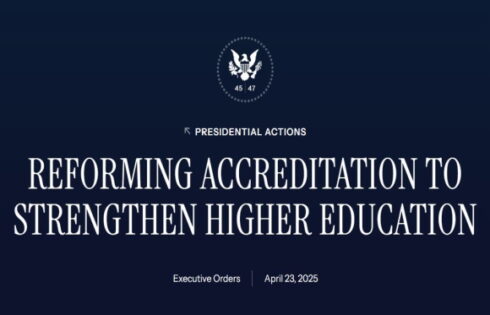
Some say Ivy League school should condemn Israel’s actions in war
Yale University students largely voiced opposition to a proposed institutional neutrality policy during a series of recent campus discussions, according to the student newspaper.
Some students said they believe the university should issue statements on current issues, such as the Israel-Palestinian conflict, the Yale Daily News reports.
The proposal came from university President Maurie McInnis in September after other prestigious universities began adopting such policies. They include Harvard, Johns Hopkins, Stanford, Purdue, and the University of Pennsylvania, The College Fix reported.
McInnis established a seven-member faculty committee to recommend “when Yale, as an institution, speaks on issues of the day,” according to a Sept. 10 announcement from her office.
The committee held a series of listening events, which concluded Wednesday, where students, faculty, and staff had the opportunity to share their opinions.
Most students opposed the measure, according to the Daily News:
At the student listening sessions, most attendees lambasted the notion of neutrality. At faculty and staff sessions, some attendees also expressed concern, while others spoke in favor of tight guidelines governing the University’s voice. …
Ivy Pete ’26 does not agree with the concept of neutrality because she believes Yale is inherently not neutral.
“We know that Yale has power beyond the limits of this nation and it has an impact on its surroundings. It’s not this theoretical bubble,” Pete said. “We’re a global institution and this decision is really important and means a lot in what Yale prioritizes.”
Many students mentioned that they would like Yale to issue a statement condemning Israel’s conduct in the war in Gaza or supporting Palestinians.
Karsten Rynearson ’26 said that the timing of the announcement to consider neutrality felt like an attempt to quell protests and dissent that have been unfolding on campus.
However, several faculty members said they think a neutrality policy is a good idea:
Leonid Glazman, professor of physics, said that the University issuing statements reminds him of how newspapers parroted the government’s positions when he lived in the Soviet Union.
“Why should universities express opinions on behalf of all these people? That’s what I find disturbing,” he said.
Paul Grimstad, director of undergraduate studies in the humanities, told the Daily News that a university neutrality policy “actually makes its protection of free and open discussion possible.”
After taking everyone’s feedback into consideration, the faculty committee and university general counsel will make recommendations to President McInnis by the end of the semester, according to the president’s office.
“To be clear, I am not charging the committee with revisiting the vital and robust protection for the free expression of individuals within our diverse community,” McInnis said in a Sept. 10 statement. “Rather, the committee’s focus is on the role of Yale itself as a speaker.”
Since last fall, many universities have adopted policies to avoid taking stances on hot-button political and social issues. Others include the University of South Carolina, University of Texas system, and University of North Carolina System, The Fix reported. The wave of change came in the wake of raucous and sometimes violent anti-Israel protests on campuses across the country.
MORE: Lawmaker questions Harvard president about flying Ukraine flag, not Israel’s
IMAGE: VicHinterlang/Shutterstock
Like The College Fix on Facebook / Follow us on Twitter






Please join the conversation about our stories on Facebook, Twitter, Instagram, Reddit, MeWe, Rumble, Gab, Minds and Gettr.